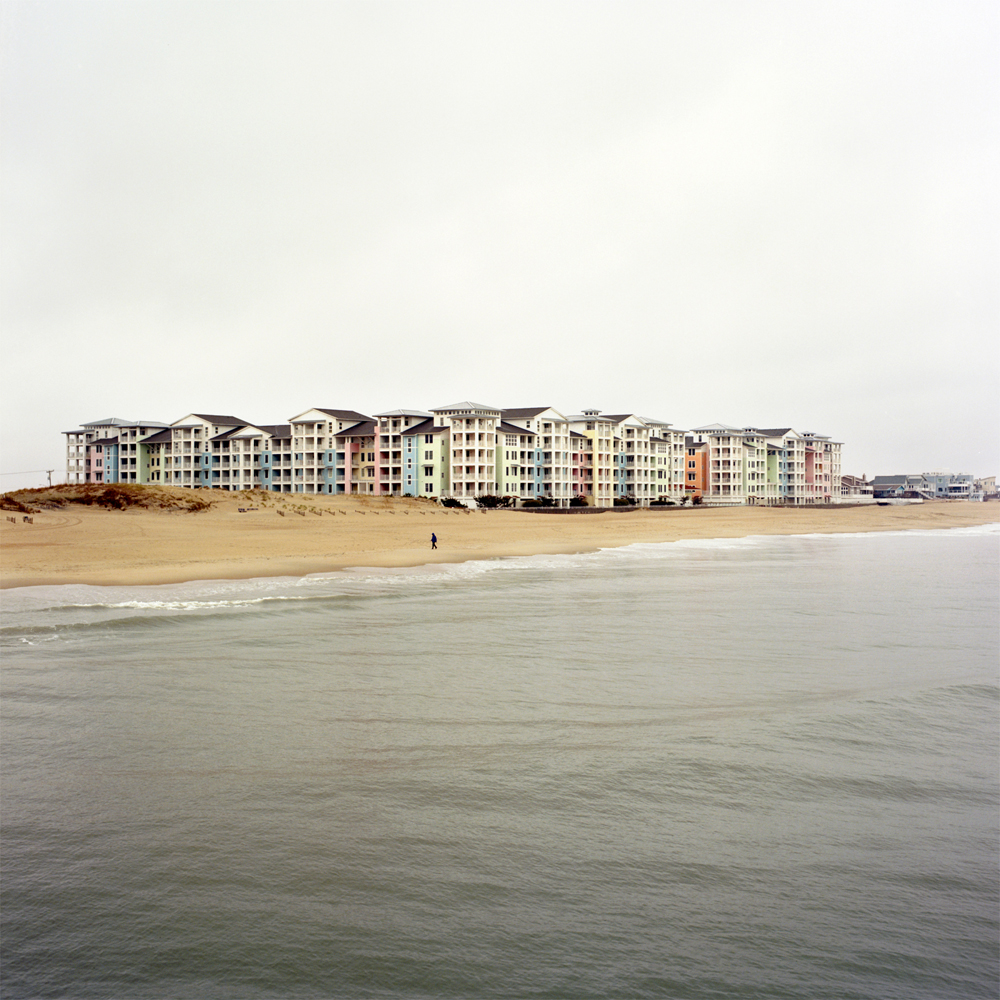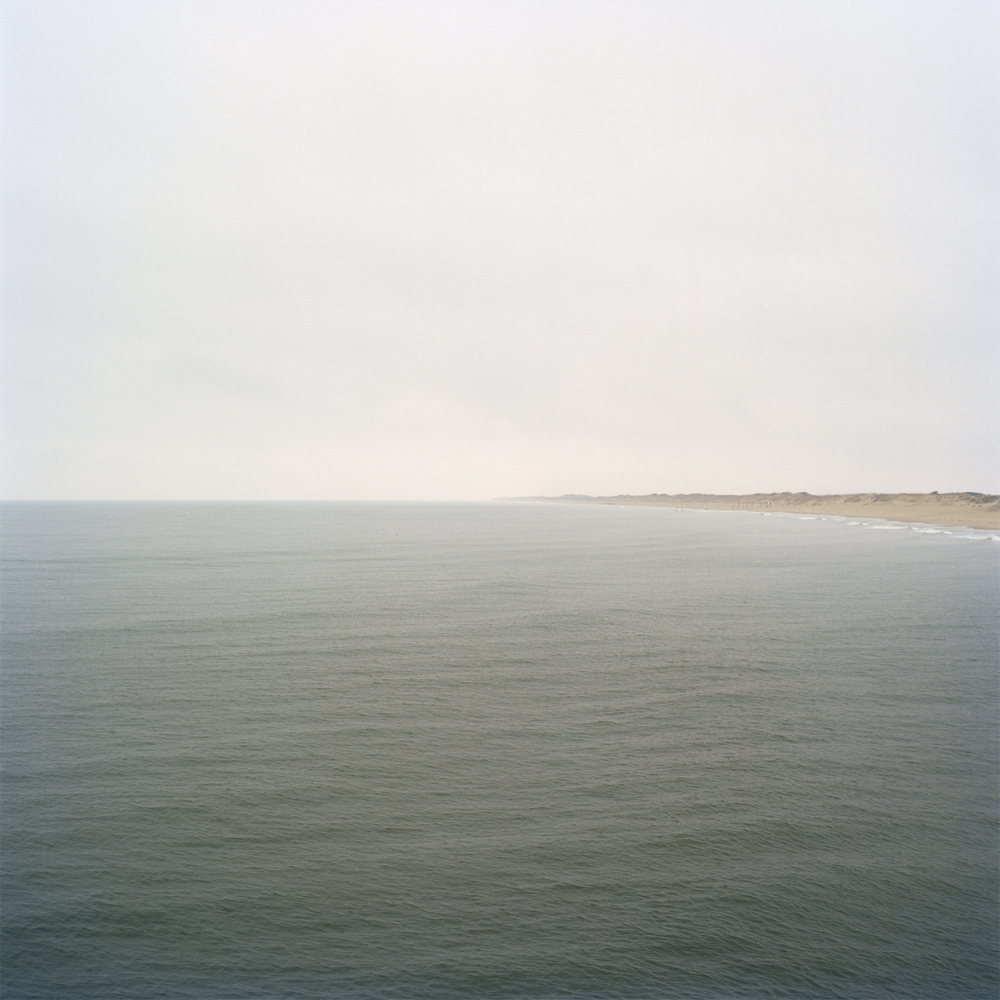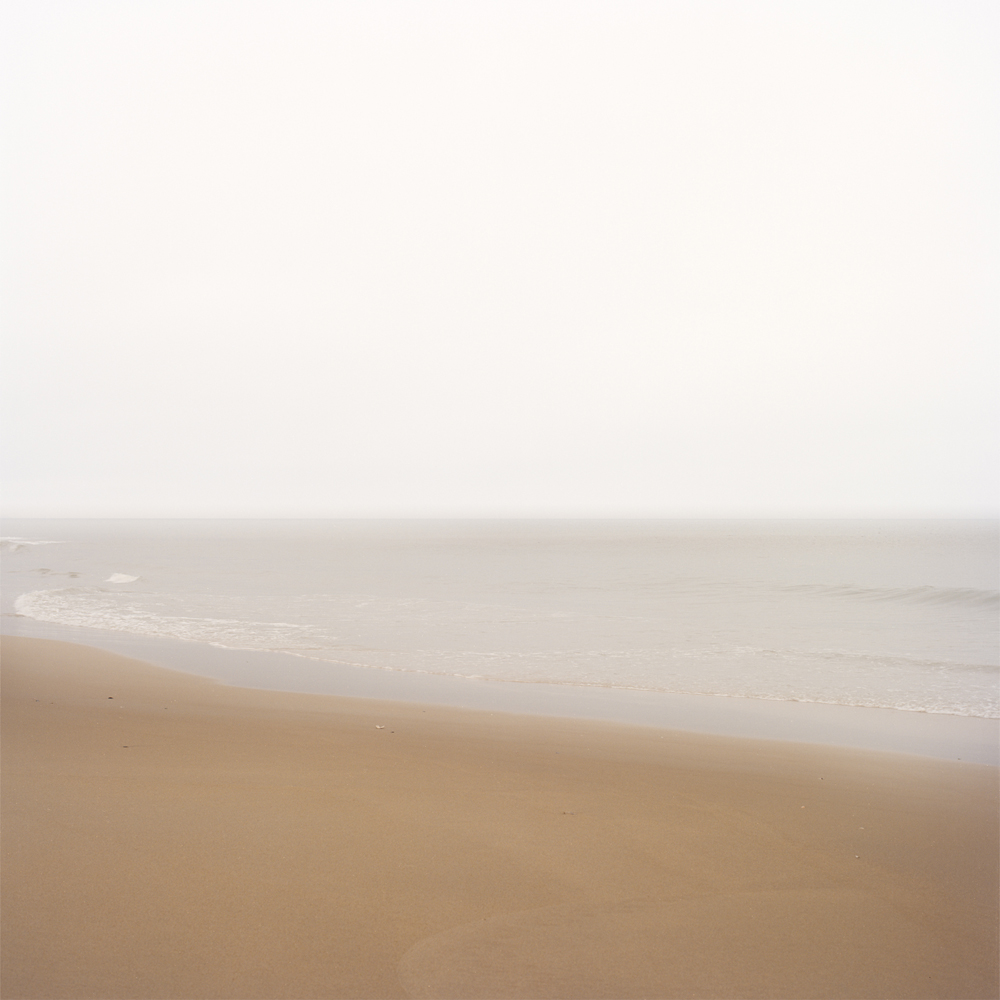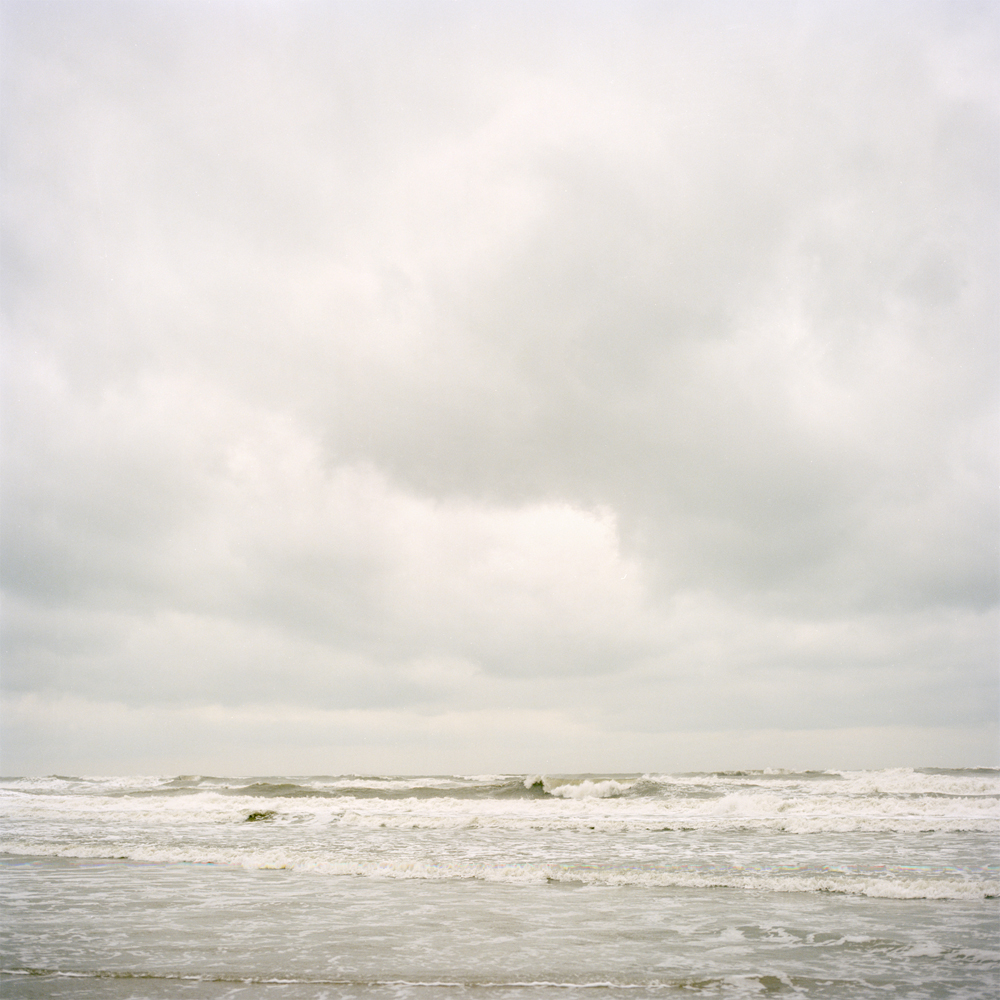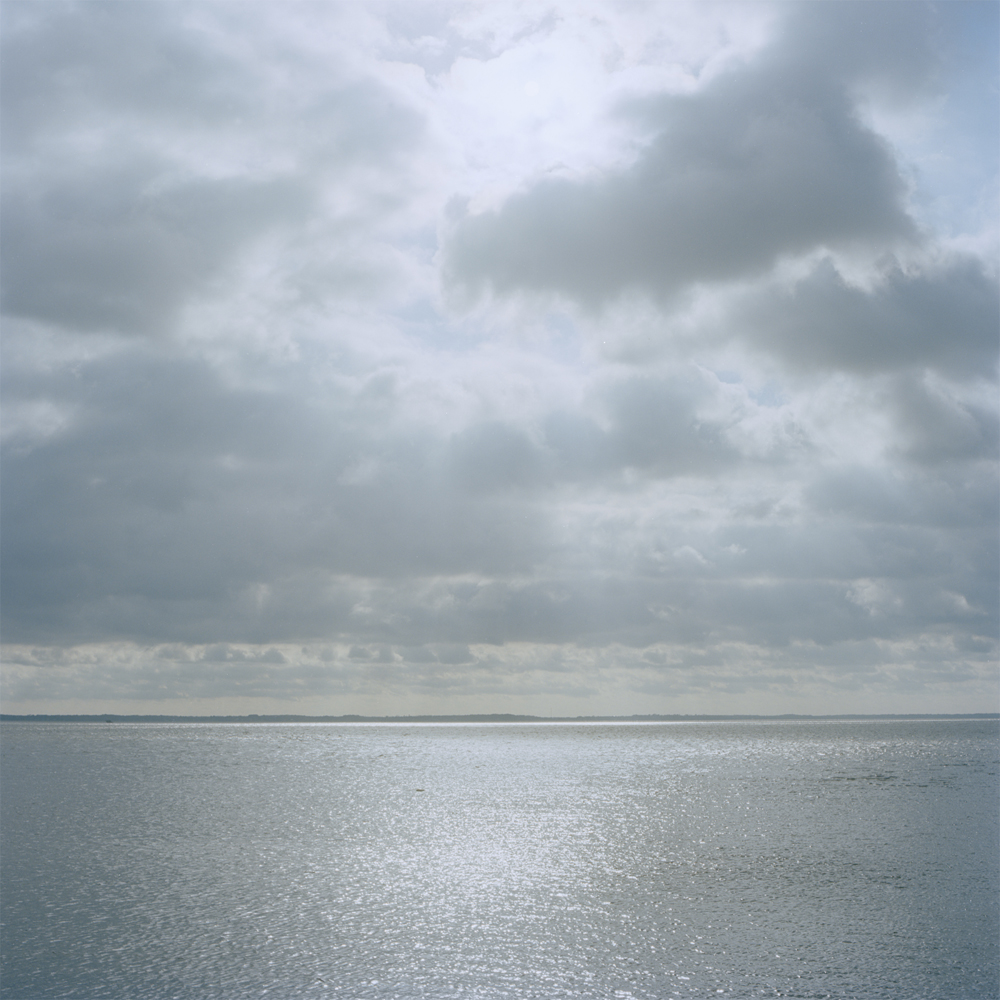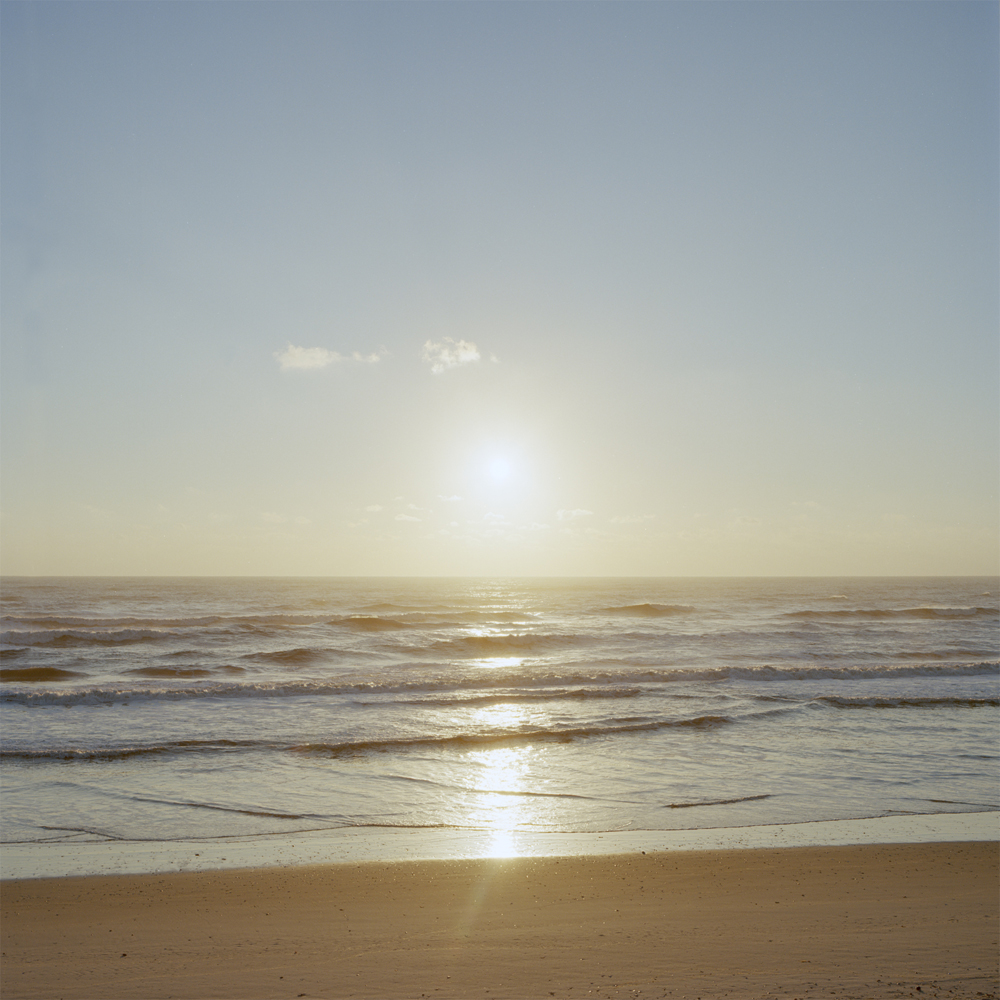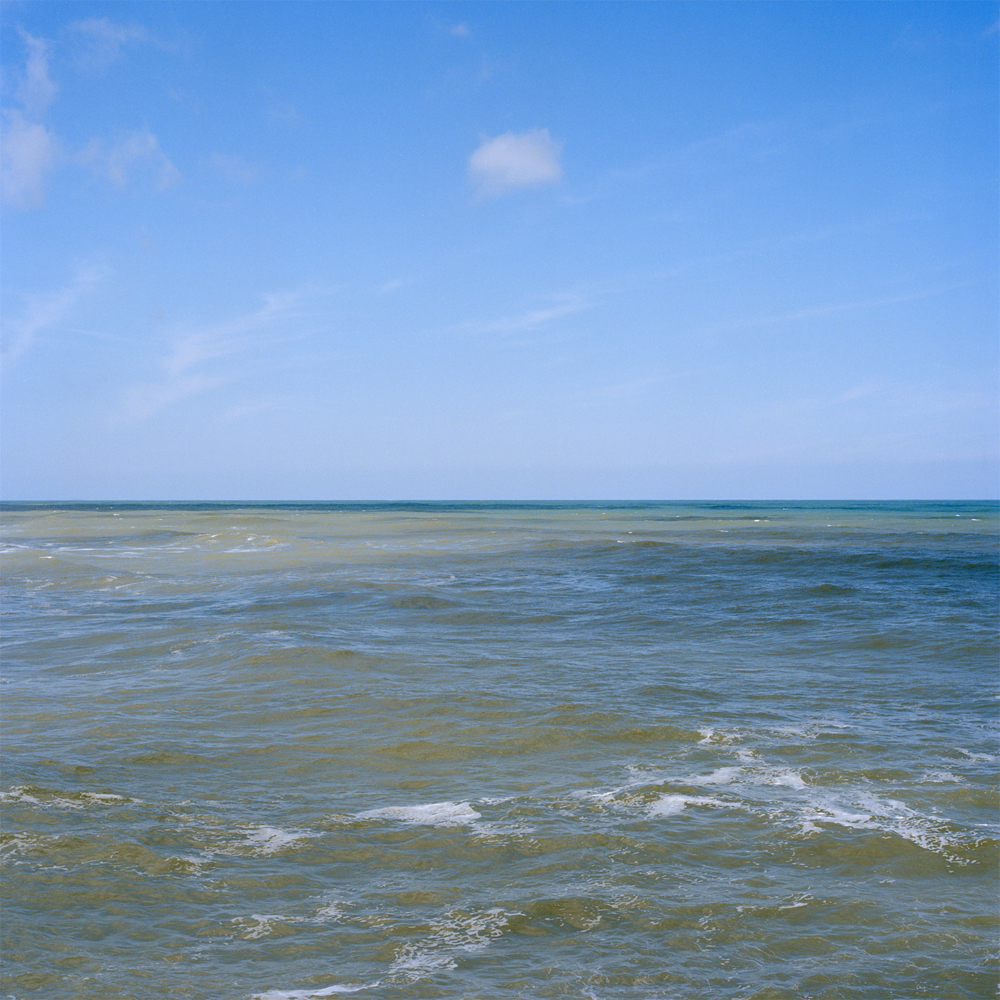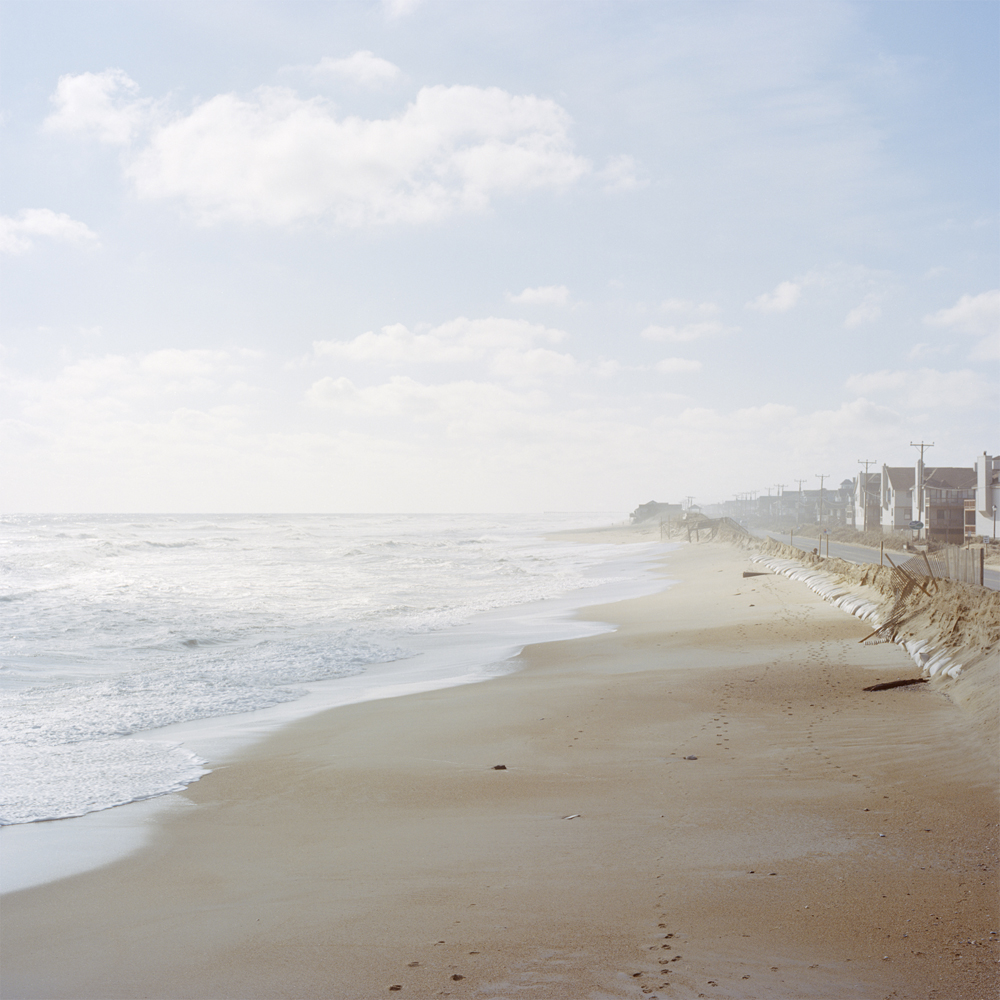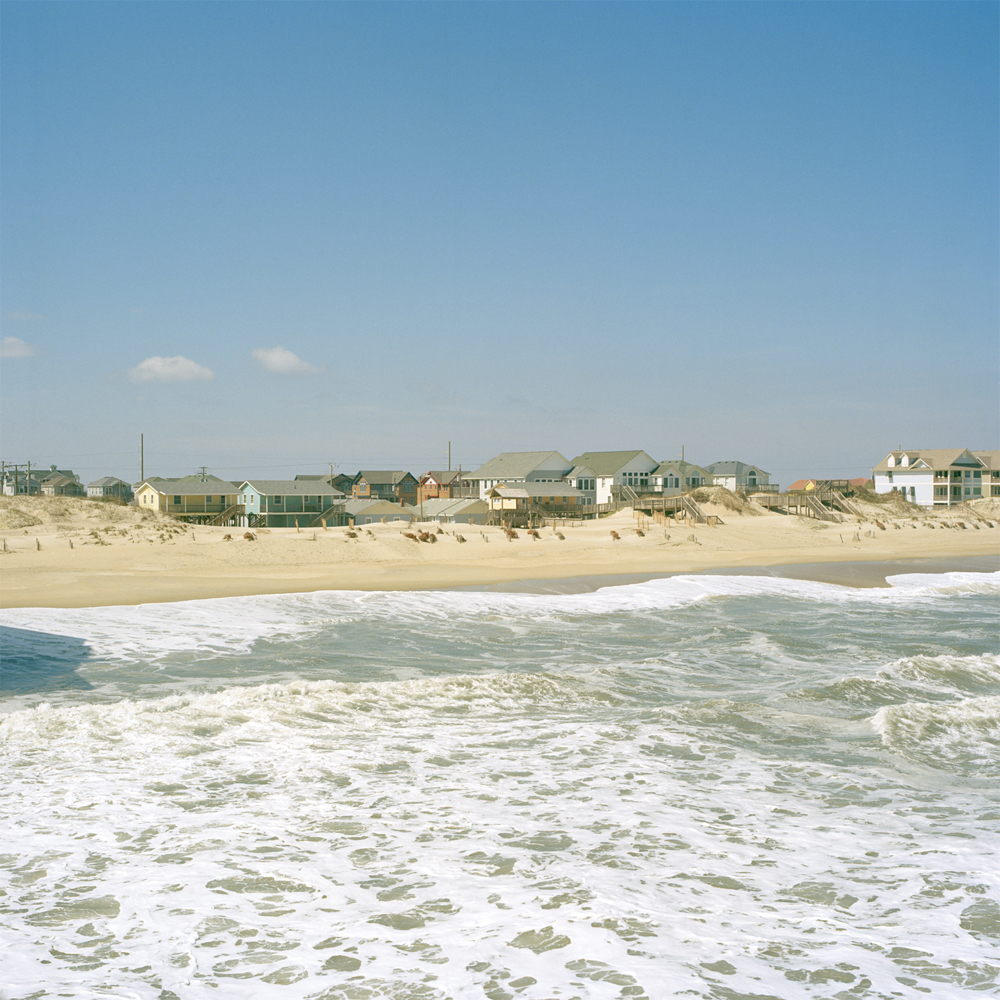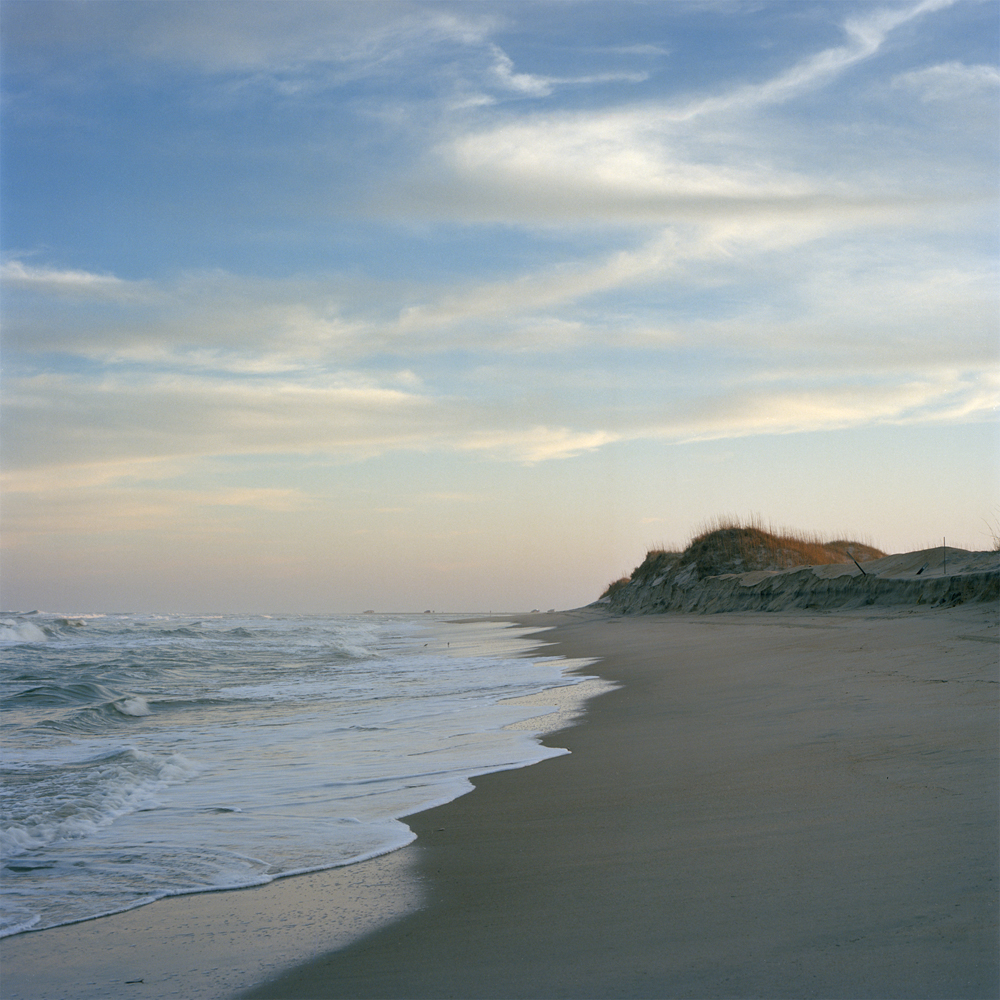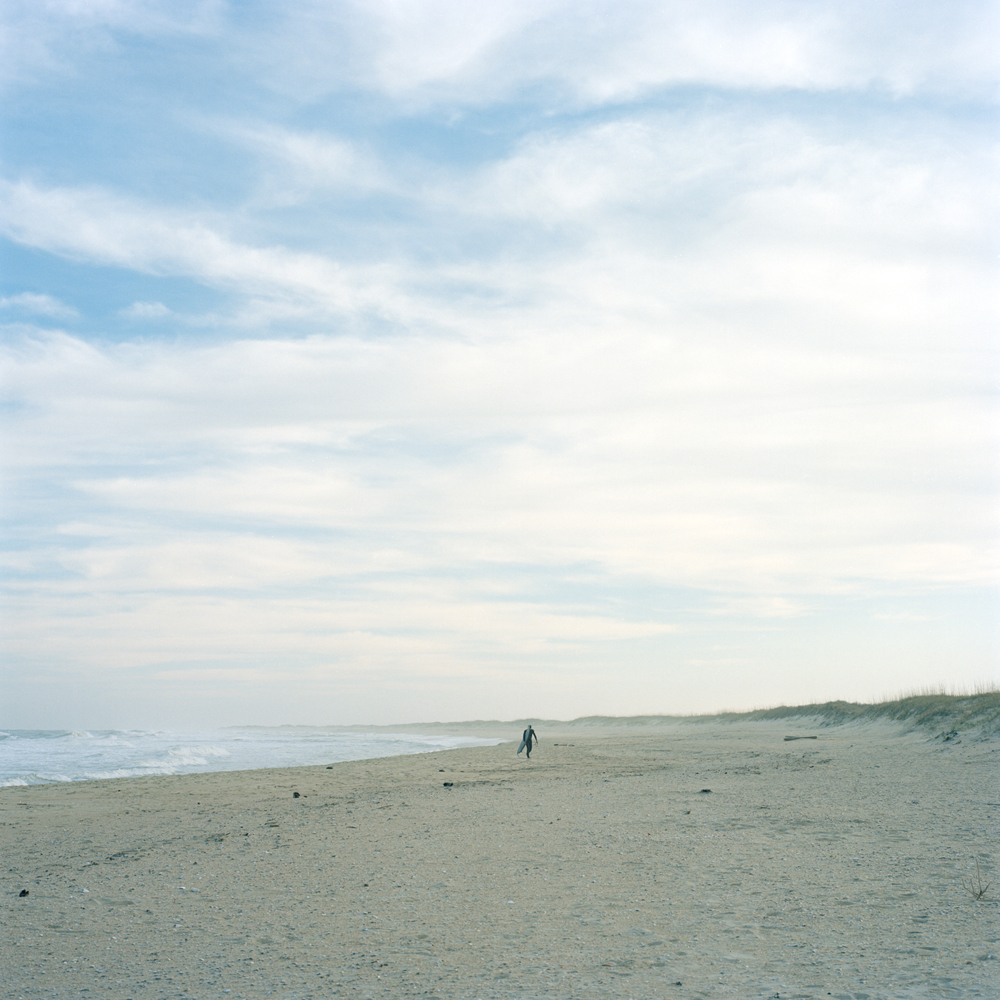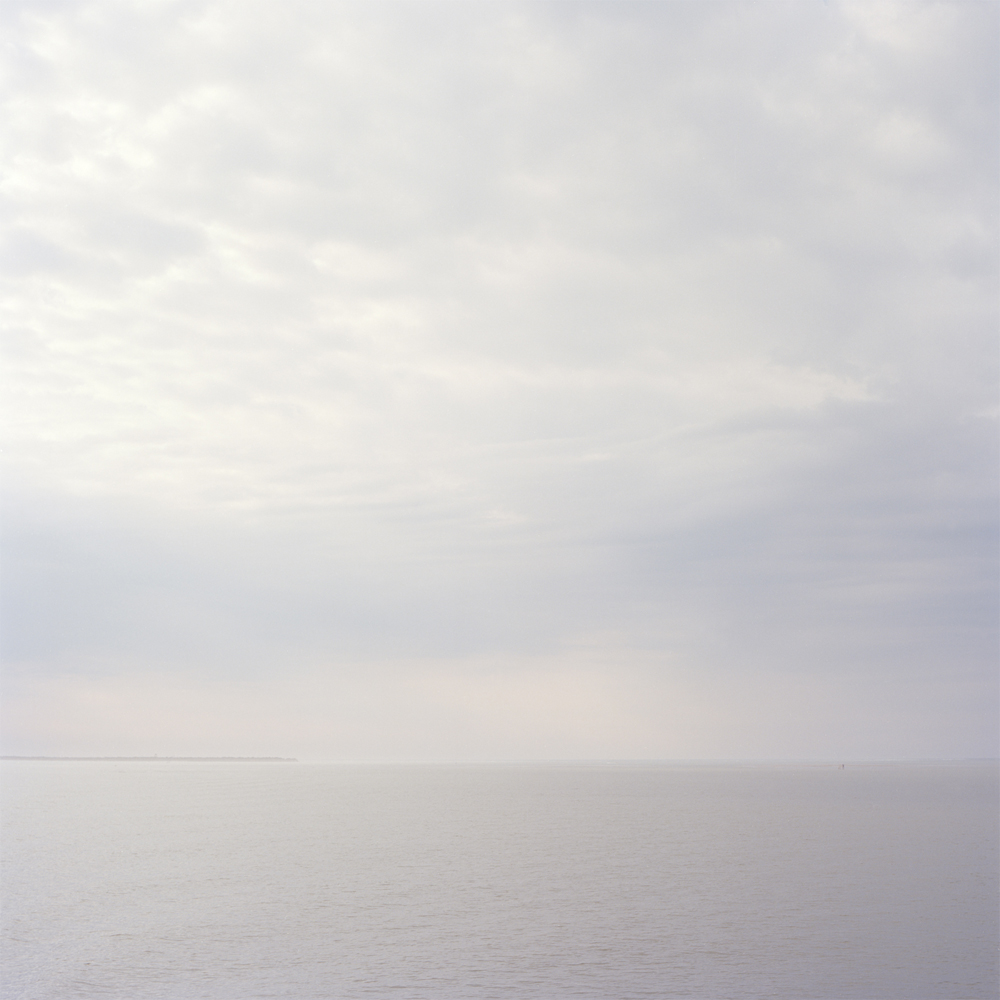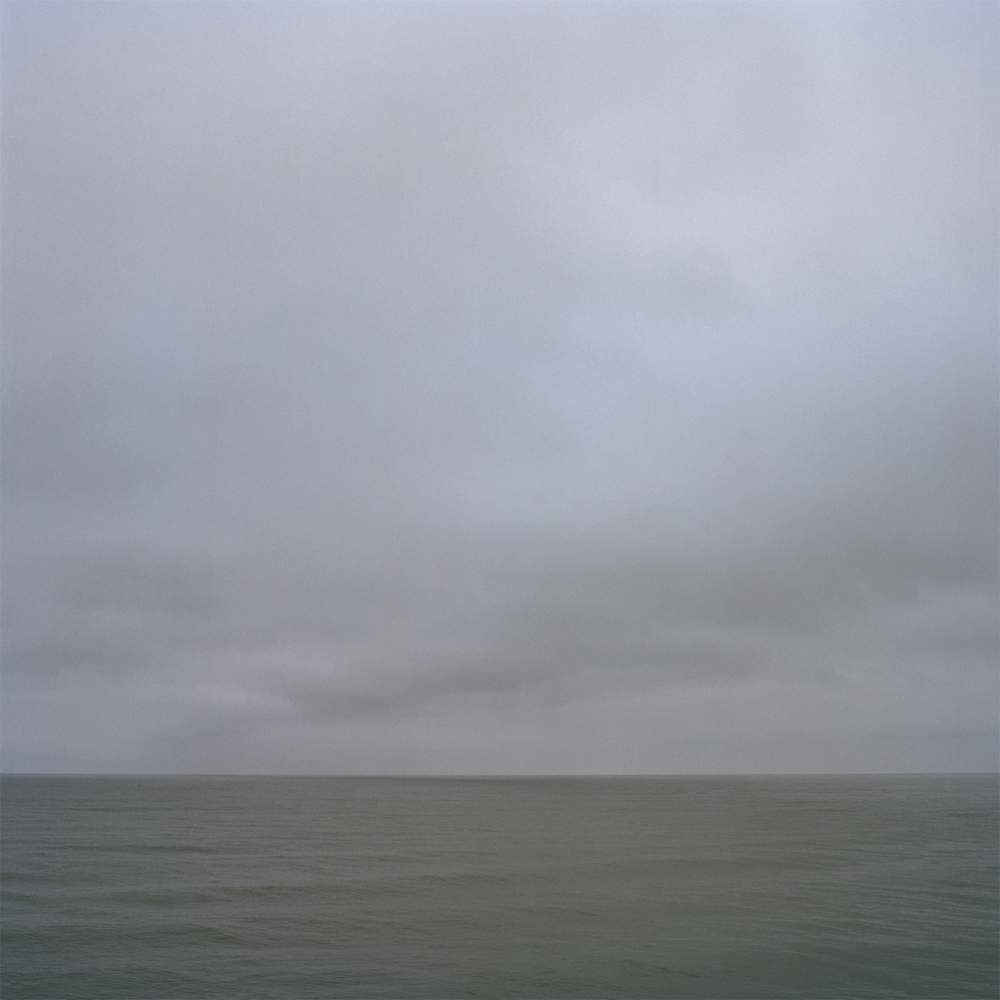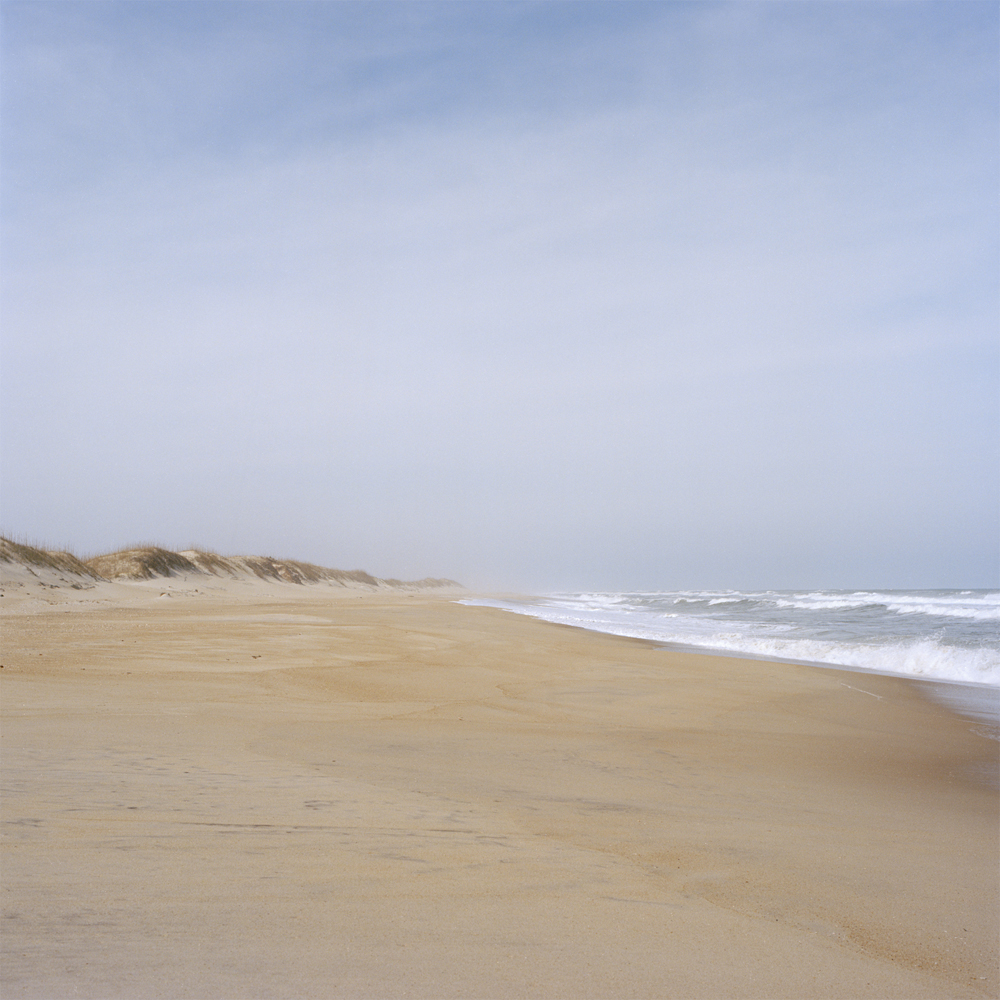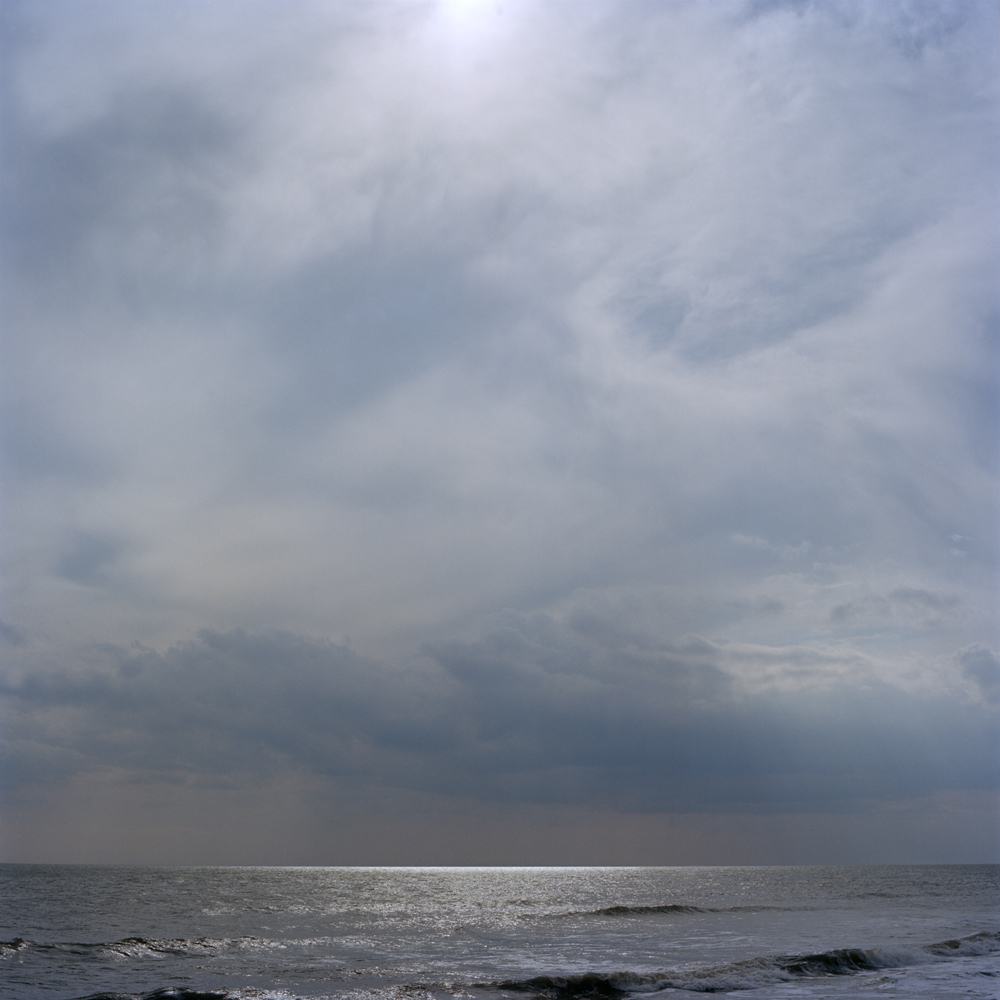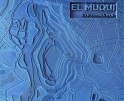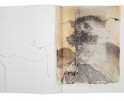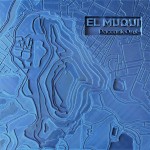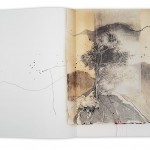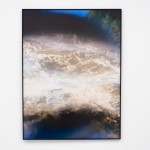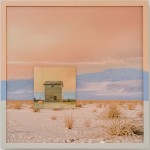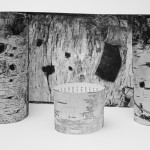Anderson Wrangle: New Vistas: Photographers working with the Landscape
The Outer Banks in North Carolina is considered to be a popular holiday destination, but it is also a place deeply threatened by rising sea levels. Photographer, Anderson Wrangle’s Outer Banks project reveals the fragility and sublime beauty of the place.
It is evident that there is great importance in his practice to contemplate nature and understand place in a variety of contexts. I had the privilege of studying with Anderson at Clemson University, and can say that he thoughtfully challenges his students with these considerations as well.
A selection of Anderson Wrangle’s work will be on view during FotoFest in a three-person exhibition, The Pleasure of Unintended Consequences at Rudolph Blume Fine Art/ ARTSCAN Gallery, Houston, Texas, March 14 – April 18.
Anderson Wrangle is from Houston, Texas. He studied at Sewanee, NYU and the University of Houston. He has lived, and worked in Prague, Portland, New York, Houston, and South Carolina. He is an Associate Professor in the Clemson University Department of Art, where he has served since 2007.
Outer Banks Statement
I was fifteen, and my mother and I were driving down the length of the Outer Banks. I stood on the thin sliver of white sand, amidst susurrating grass, staring out at blue sea and sky. It was serene, and difficult to take in. I held that memory for thirty years, and then I felt a need to make photographs of this distant landscape.
And so, on my first day photographing, I found myself wearing all the clothes I had brought with me, leaning into a freezing gale, attempting to steady my camera and tripod. No blue skies, or blue sea, but a churning froth of rollers and breakers and horizontal rain. Everything there is changeable. The islands continually shift, erode and reform. The air is calm one day, and wild, cold and wet the next. The ocean is placid, then violent. The light is at turns soft, glaring, foreboding, brilliant or otherworldly.
The Outer Banks of North Carolina has always been a place at an extreme limit of geographic possibility, and is literally shifting sand in a dangerous sea. It is a place which is threatened by rising seas due to Climate Change, and which is hampered in its natural capacity for regrowth by development. Even the maintenance of the thin ribbon of highway intrudes in the natural process of dune formation.
In 2012 North Carolina politicians passed a law, House Bill 819, which ordered state and local agencies to ignore models of climate change predicting sea level rise along the coast. This was in response to a report by the state Coastal Resources Commission which had in 2010 produced a report which estimated a 39 inch sea level rise by 2100 . We have this approach replicated and expanded systematically in current federal policies, and through the dismantling of government agencies, and the general move away from science and rational policy making. The trend of these local, state, and national actions which undermine the science, awareness and response to Climate Change is most clearly indicated by the United States’ withdrawal from the 2015 Paris Agreement on climate change mitigation.
There had been a sense that Climate Change was happening somewhere else, though by now it should be hard to ignore that it is happening all around us. I became interested in paying close attention to the land around me where I live in Upstate South Carolina, in the Savannah River Basin. This interest has expanded to seeking out places at the margins, edges and limits of the world. These places are often the most fragile, the most changeable and the most obviously threatened by the unfolding changes in our world. I think it is important to acknowledge and reiterate the truth of the changes that are well underway, and to argue for collective responsibility through government policy and action to control U. S. and world carbon emissions.
While traveling along this sublime coast I was attuned to photographing feeling and sense as much, or more, than object and form. There are several images, such as Outer Banks #9 which might contain the thesis of the project, a statement about the fragility of the place, and the folly of man. Otherwise I was concerned with trying to give a sense of this place. It is a landscape, an environment, which is almost not there, and these photographs describe this fragile, liminal world, and the state of mind that calls forth. I hope this evocation, and this state of meditative and heightened attention, refer to a place that might persist into the future.
[1] https://www.sealevel.info/NC_Sea-Level_Rise_Assessment_Report_2010–CRC_Science_Panel.pdf
Posts on Lenscratch may not be reproduced without the permission of the Lenscratch staff and the photographer.
Recommended
-
Paccarik Orue: El MuquiDecember 9th, 2025
-
Jackie Mulder: Thought TrailsNovember 18th, 2025
-
Interview with Maja Daniels: Gertrud, Natural Phenomena, and Alternative TimelinesNovember 16th, 2025
-
Mara Magyarosi-Laytner: The Untended GardenOctober 8th, 2025
-
Conner Gordon: The OverlookOctober 4th, 2025

